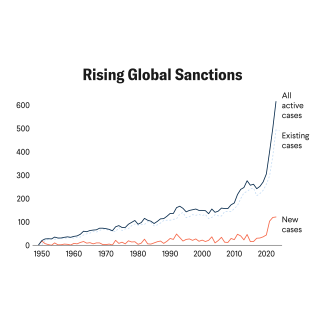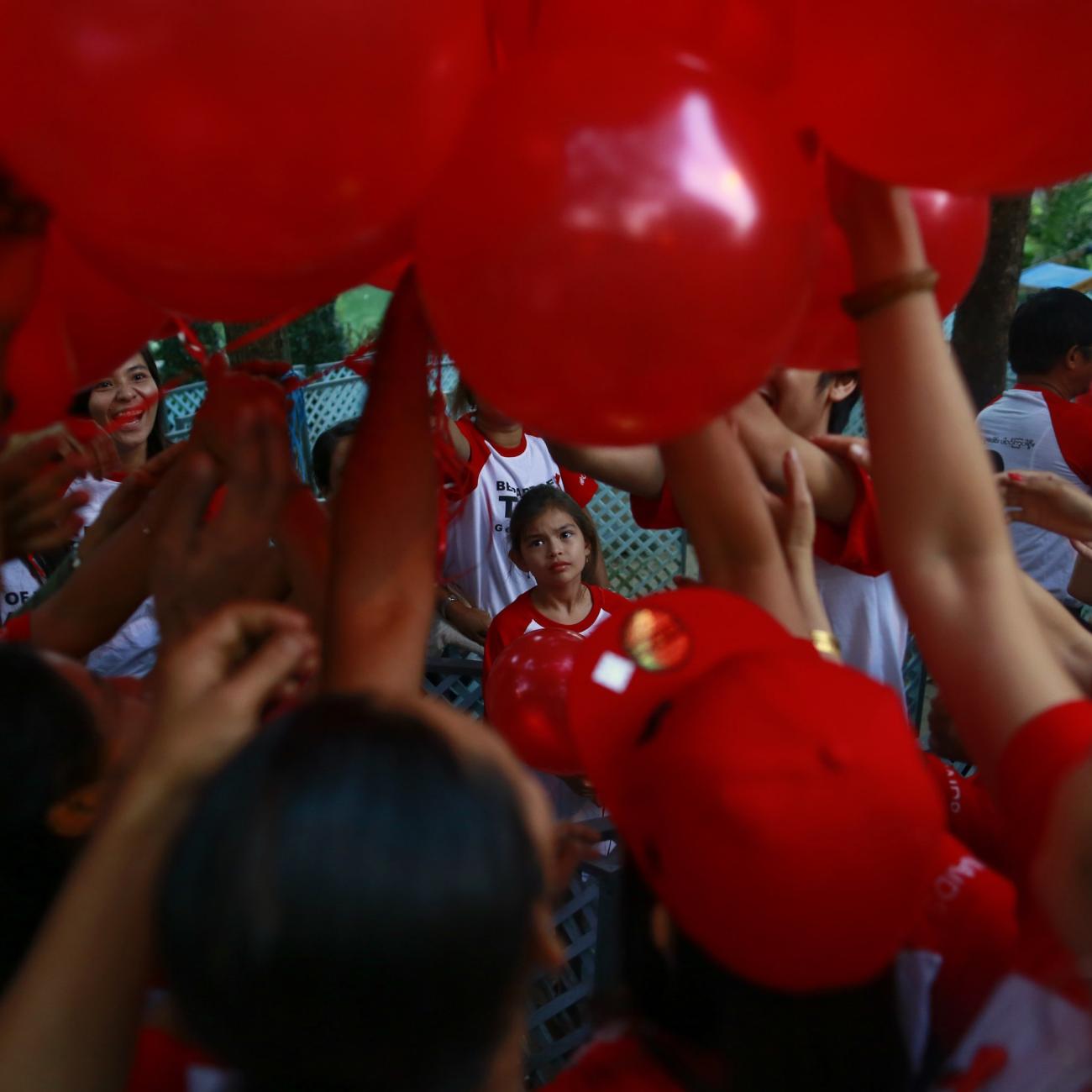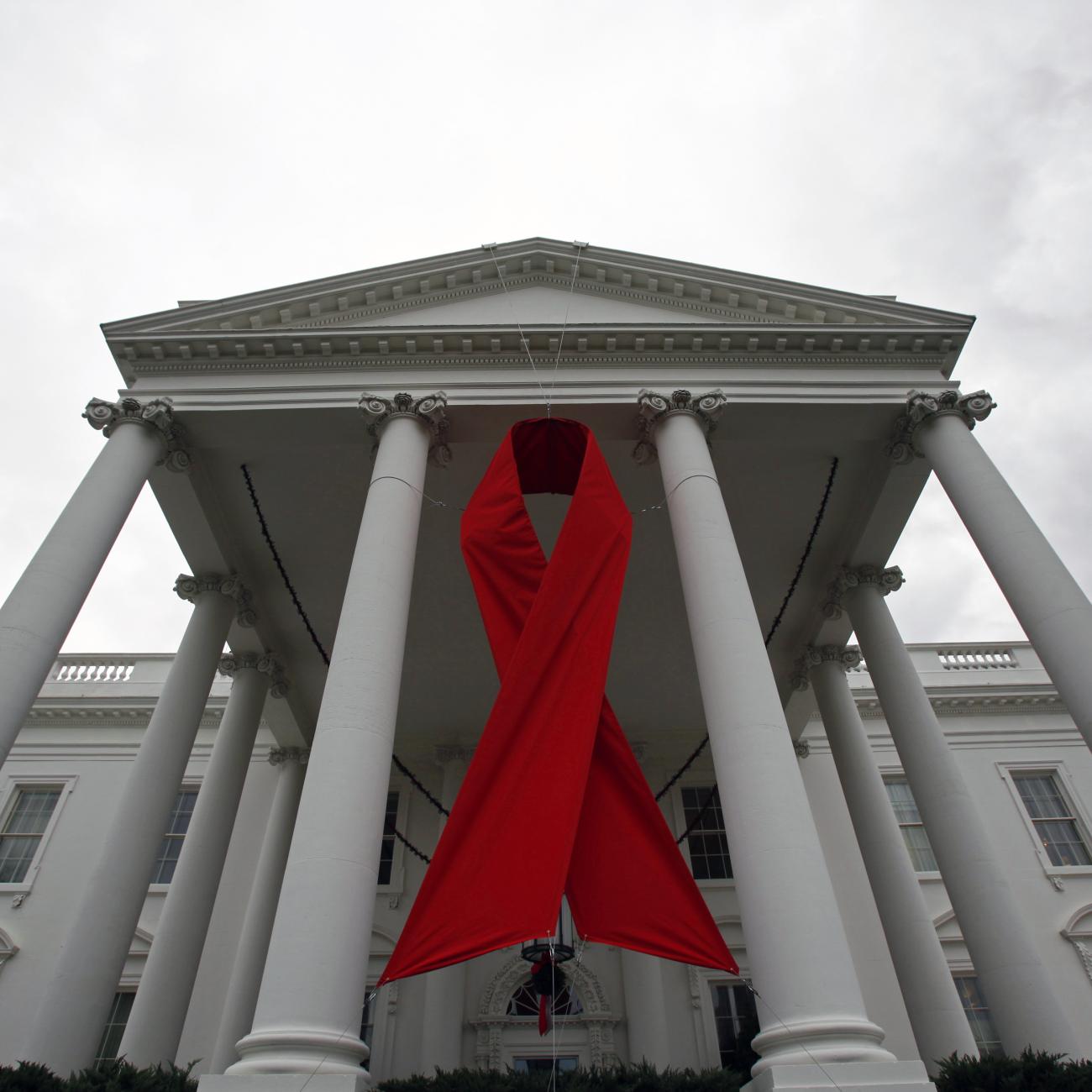On March 23, 2024, the President's Emergency Plan for AIDS Relief (PEPFAR) was reauthorized for one year as part of an omnibus funding bill. The legislation capped a nine-month roller coaster in which expectations of a fast, "clean" reauthorization (for five years, with no changes to the legislative language) gave way to a fraught, chaotic fight just to preserve the program that lawmakers from both sides of the aisle had previously dubbed America's most successful global health foreign aid initiative in history.
Each of the program's three prior reauthorizations enacted a stand-alone law spanning five years. The reauthorizations were often by voice vote, with robust bipartisan support and emotional declarations that the HIV program launched by George W. Bush in 2003 was among the most effective pieces of foreign aid in American history.
This time, the program received a one-year reauthorization stashed in the fine print of a spending bill. The shift has major implications for the program's current mission to accelerate the response to "end the HIV/AIDS pandemic as a public health threat by 2030, while sustainably strengthening public health systems to create a healthier, safer, and more secure world."
With a shortened timeline, PEPFAR no longer sends a clear signal that the U.S. government is serious about ending HIV/AIDS as a public health threat to the governments in its partner countries. Countries could default to more modest investments or, worse, scale back programs for some populations at the highest risk of HIV. In many countries where PEPFAR operates, it is in programs for "key populations," including LGBTQ+ individuals, sex workers, and people who use drugs. PEPFAR's DREAMS (Determined, Resilient, Empowered, AIDS-free, Mentored, and Safe) program has funded the layering of social, structural behavioral, and biomedical resources for adolescent girls and young women at the highest risk of HIV.
Progress in the AIDS fight is also utterly reversible. In the absence of robust treatment and prevention services delivered in the context of human rights for all, HIV infections and deaths from advanced HIV disease could and would rise.
Next week, thousands of people working on HIV gather in Munich, Germany for the twenty-fifth International AIDS Conference. Hallway chatter will undoubtedly circle around the health of PEPFAR, the implications of President Biden's flat-funding request for the program for fiscal year 2025, and the future of U.S. involvement in global health after the November elections. To inform these crucial conversations—and broader discussions about the HIV response—Think Global Health has spent several months investigating how PEPFAR came to be in its current state.
PEPFAR is the only disease-focused program with demonstrated impact on broader global health security objectives
We asked more than a dozen scientists, clinicians, advocates, and current and former PEPFAR staffers to share their analysis of what has happened to PEPFAR in recent months. Across conversations and careful review of the U.S. government's paper trail on its own programs, we put together a case file on the players who had the means, motive, and opportunity to put PEPFAR in such critical condition.
The jury is by no means unanimous. But the points raised are important ones that should be part of the "corporate memory" of PEPFAR's unfinished trajectory.
Over the course of three articles, Think Global Health will present its case file. The series looks back to the secretive planning sessions in which the program was designed—and forward to the potential future of the U.S. government's contribution to the HIV/AIDS response, as well as to other areas of U.S. activity, including biodefense and biosecurity, and pandemic preparedness, for which PEPFAR program holds many lessons. Guilt won't be assigned, but the evidence, ideas, and questions presented might help revive this program and pave the way for others like it.
PEPFAR's current condition is bad news for the broader U.S. global health agenda. PEPFAR is the only U.S. government global health program with a "whole of government" structure that places U.S. ambassadors in the leadership role at the country level, with support from a State Department–based ambassador empowered to shift resources and set targets and strategy to meet specific goals. It is the only U.S. government global health program that has conducted and acted on the results of detailed cost and expenditure analyses to ensure that every partner is using its funds as efficiently as possible. And it is the only disease-focused program with demonstrated impact on broader global health security objectives—PEPFAR helped support responses to Ebola, COVID-19, and mpox—that shares annual progress reports, country plans, and detailed data with Congress, the general public, and affected communities in the countries where it operates.
For two decades, messages focused on what PEPFAR has done have omitted how PEPFAR has delivered its accomplishments. This HIV program in a perilous state at the moment doesn't only have urgent, unfinished work, it is also a singular example of American design, iteration, partnership, and invention. Elements of PEPFAR's model could be adapted or even repurposed from the current program to effectively support broader U.S. global health objectives. But for such future programs to succeed over the long term, we need a much clearer analysis of PEPFAR's recent fall.
How PEPFAR Landed in Turmoil
In most accounts, PEPFAR's trouble started in June 2023, when the Heritage Foundation issued a report alleging that the program's resources were being used to pay for abortions.
Within weeks, right-wing organizations had written a letter to Congress demanding an explanation, and Representative Chris Smith (R-NJ), a champion of the original 2003 legislation and author of the 2018 reauthorization, penned a dear colleague letter stating that President Biden had "hijacked PEPFAR…in order to promote abortion on demand." Smith has insisted he still believes in the program's HIV-fighting mission, and that he isn't trying to end the program, merely adjust it.
Over the coming months, the abortion accusations—which remain wholly unsubstantiated—left PEPFAR in legislative limbo, with Republican members of Congress reluctant to break ranks with Smith and his cohort, and Democrats failing to mount a successful defense. It seemed like an open-and-shut case of death (or diminishment) by culture wars. But the story isn't that simple. None of the people we spoke to absolved the Republicans; but many felt that they did not deserve all the blame.
Several people felt that the program attacked by a handful of right-wing Republicans had already been weakened and undermined by years, if not decades, of arguments against the program's housing within the State Department and its data-driven approach. In some instances, these arguments were made most persuasively and persistently by Democrats with influence in both the Barack Obama and Joe Biden administrations.
The "how" of PEPFAR's operations took the biggest hit in recent months
This isn't surprising. For PEPFAR's entire existence, Republican members of Congress have been more concerned about what it was doing, and Democrats more likely to take issue with how it operates. This makes some sense. The program was designed by a Republican president who was familiar with and shared a conservative critique of development aid as inefficient, wasteful, and inhibited by the guilt of former colonizers, who eschewed high expectations to make up for centuries of pillage. Bush scoffed at this and declared, somewhat remarkably, that the United States had no colonial guilt. But he also charged his team with designing a foreign aid program that would, and did, report on and deliver results in ways that the U.S. Congress had never before seen.
The MBA president delivered for his fellow party members. As we discuss in article 2, the structure, strategy, and location of the program rankled the largely Democratic development establishment from day 1. The low-grade hum of tension and disgruntlement over PEPFAR's modus operandi has never died down; it's also never become part of the dominant narrative about Bush's AIDS fight, which is why PEPFAR in 2024 looks like another casualty of the country's health-focused culture wars—and not the survivor of a decades-long debate over whether it should exist.
The "how" of PEPFAR's operations took the biggest hit in recent months. As the reauthorization debate unfolded, conservative hill staffers sent a slew of questions about routine congressional notifications that PEPFAR provides about intended expenditures and activities. PEPFAR has always received questions about its intended plans, and the Republicans involved in this intensified oversight never publicly linked it to the political discord around reauthorization—though news coverage did. Whether or not the processes were linked, the scrutiny centered on the program's approaches to reaching those most vulnerable to, and likely to be living with, HIV. PEPFAR has faced questions about its intended plans in the past, and the comment process is reportedly being reviewed.
Nevertheless, the unprecedented scrutiny, which delayed the movement of funds needed on the ground for activities, is cause for concern because it could be resurrected in the future.
If PEPFAR cannot make long-term plans, deliver funding on schedule, and work with communities to deliver the services they need and want to reduce HIV risk, then the program cannot continue its years-long reputation of delivering progress toward epidemic control. There is every reason to reexamine what U.S. support for the HIV/AIDS fight looks like, but the reauthorization debacle has made discussing the text of the legislation profoundly risky. Opening the text to examine its scope, focal areas, and approaches offers an opportunity to enshrine new conservative provisions into the law. This could include the "global gag rule" on using U.S. foreign assistance funding to speak about, refer for, provide or advocate for abortion that every Republican president since Ronald Reagan has enacted via presidential memorandum, and which President Donald Trump expanded to include PEPFAR—and other global health funding—in 2017. On taking office, Biden reversed the rule.
PEPFAR on Life Support
PEPFAR is in critical condition and badly needs resuscitating via a five-year reauthorization. But it doesn't need to be the same program that it was 10, five, or even two years ago. HIV/AIDS is ongoing and severe in many communities and countries, particularly key populations. At least one of the people we spoke with said that PEPFAR and the broader AIDS fight had been undermined by promises that investing more money now would lead to the "control" or "end" of the epidemic. Even with this important consideration, the program needs to turn—and has embarked on a process of turning—greater control and leadership over to the countries and communities where it works.
This process is undermined by recent events. The fear that legislators on the left or the right might seek to add new text to the authorizing legislation means that all parties invested in the program's future have embraced a "clean" reauthorization, which carries forward the prior text. This preserves the program at the cost of affording PEPFAR the opportunity to change again, evolving with intention and strategy to meet the needs of the current HIV pandemic and other infectious disease threats.
The one-year reauthorization offers a slim window to regroup and set strategy that could revive and revitalize the program
The one-year reauthorization offers a slim window to regroup and set strategy that could revive and revitalize the program. Success depends on a proper diagnosis of PEPFAR's critical condition. The case against conservatives needs to be reopened, not to exculpate but to complicate a tidy narrative that does not serve PEPFAR or U.S. ambitions to improve health security at home and abroad.
As Anthony Fauci recently wrote, the ability to respond to future pandemics is threatened by "the transient nature of 'corporate memory' related to affronts on global health." The amber of corporate memory is already hardening around the story that PEPFAR got caught in the crosshairs of the culture wars while the Biden administration either looked on or looked the other way.
J. Stephen Morrison of the Center for Strategic and International Studies wrote recently of the White House's "lax, intermittent and ineffectual" engagement with Democratic and Republican lawmakers. In March, in Think Global Health, former acting chief of staff for the U.S. Global AIDS Coordinator Jirair Ratevosian suggested that the Biden administration was "distracted by other pandemic priorities" when PEPFAR needed stalwart defense.
Neither Morrison nor Ratevosian delve deeply into why the White House pulled its punches in the PEPFAR fight. Ratevosian's charitable explanation that the president and his people were preoccupied could have been true for the early days of the debacle. By July 2023, however, the battle lines were drawn, and the administration still did not come out swinging. At last year's launch of the State Department's Bureau of Global Health Security and Diplomacy, which now houses PEPFAR, Secretary of State Anthony Blinken was mild and modest about PEPFAR's potential contributions to health security, stating that "We will be very well positioned to apply [PEPFAR's] many lessons—as well as those learned from countering other infectious diseases over the years—to deliver on our other global health priorities."
A full-throated Biden administration defense of PEPFAR might not have changed the course of events in recent months. But it is also possible that a more robust, strategic political strategy for PEPFAR reauthorization before and after the Heritage Foundation report could have changed the outcome.
Delving into these and other questions about how PEPFAR got so damaged can inform the program's next reauthorization effort. As important, a forensic analysis of how and why a results-focused, efficiency-oriented, well-coordinated U.S. investment in fighting pandemics weakened could help strengthen the crucial health security work that remains to be done.
EDITOR'S NOTE: This story is the first in a three-part series about how the President's Emergency Plan for AIDS Relief (PEPFAR) came under threat. All three stories are available at this series page.



